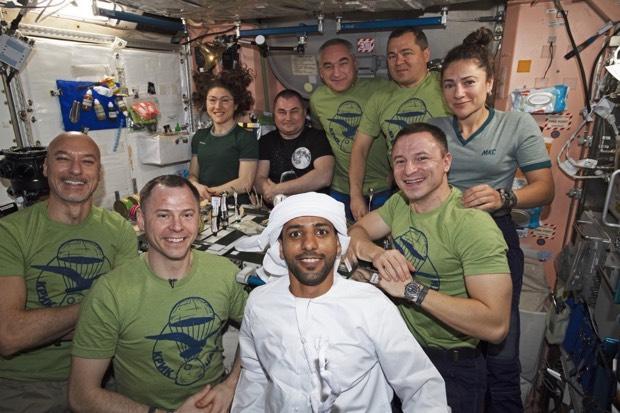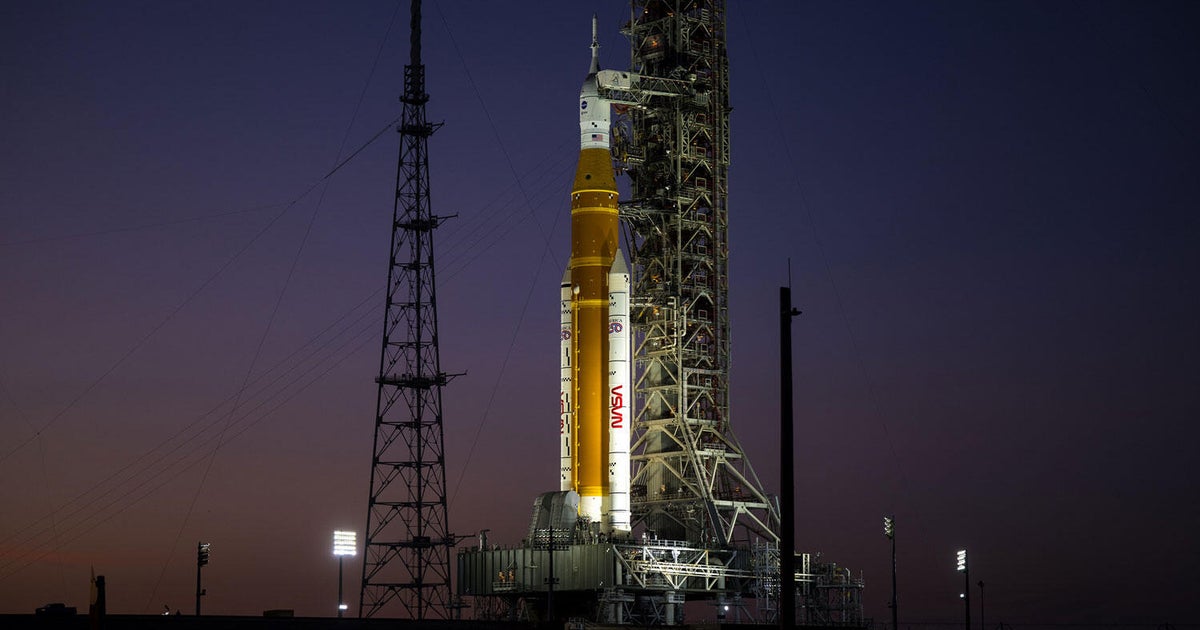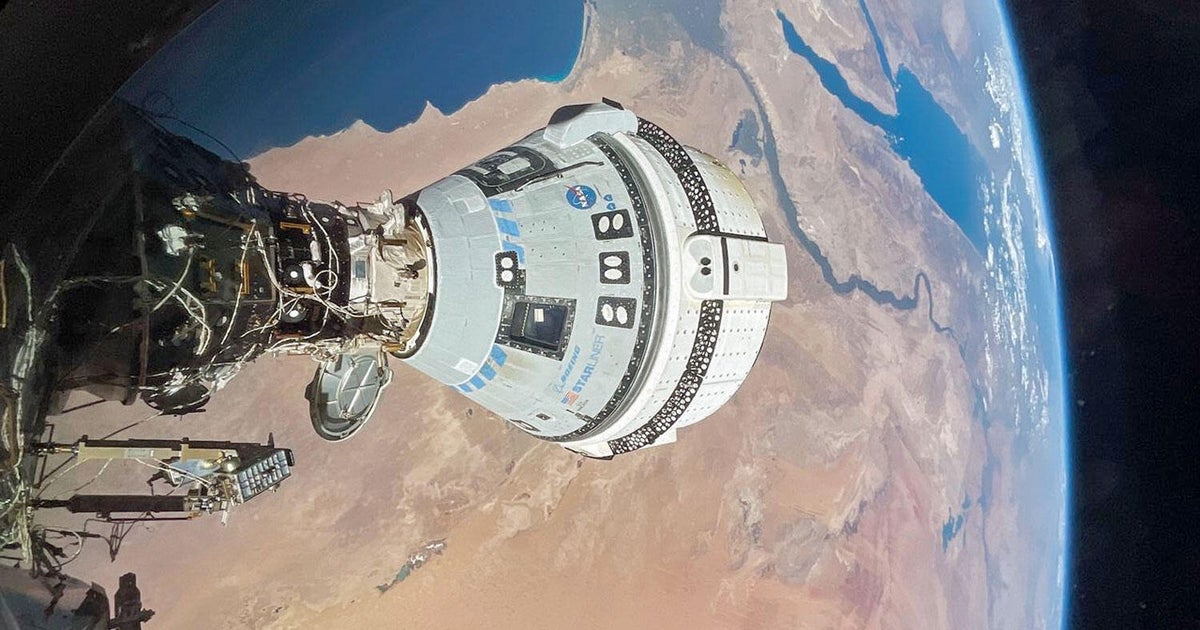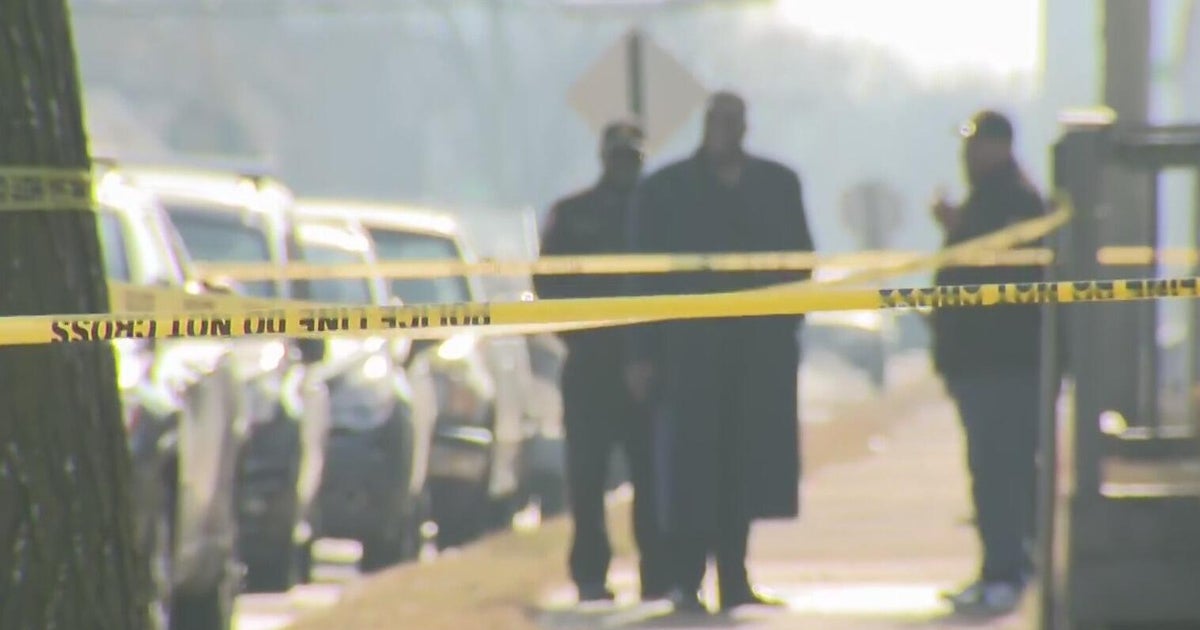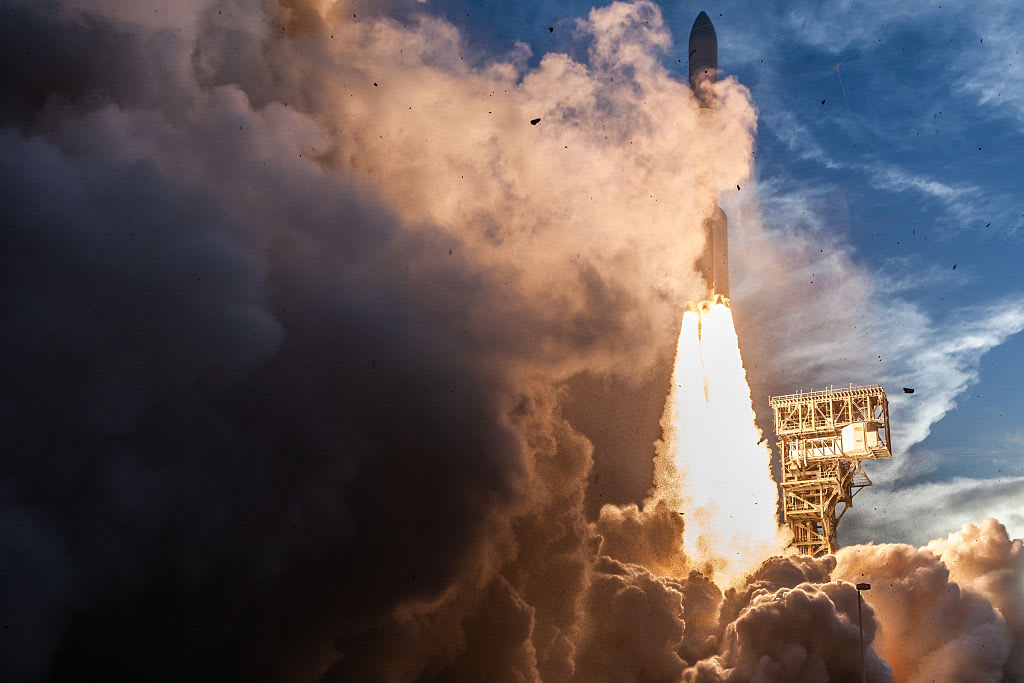Three space station fliers set for return to Earth
Three space station fliers — a Russian commander, a NASA flight engineer and the first United Arab Emirates space traveler — finished packing Wednesday for a fiery overnight plunge back to Earth and landing on the steppe of Kazakhstan Thursday morning U.S. time.
Soyuz MS-12/58S commander Alexey Ovchinin, co-pilot Nick Hague and UAE "spaceflight participant" Hazzaa Ali Almansoori were scheduled to undock from the station's Russian Rassvet module at 3:37 a.m. Thursday.
After moving a safe distance away, Ovchinin and Hague will fire the spacecraft's braking rockets at 6:06 a.m., setting up a landing near the town of Dzhezkazgan around 7 a.m. (5 p.m. local time).
Left behind aboard the station will be the six-member Expedition 61 crew made up of Italian commander Luca Parmitano, cosmonauts Alexander Skvortsov and Oleg Skripochka and NASA astronauts Jessica Meir, Christina Koch and Drew Morgan.
For Ovchinin and Hague, touchdown will mark the end of a year-long space odyssey that began with a launch attempt in October 2018. Two minutes after liftoff from the Baikonur Cosmodrome, the normally reliable Soyuz booster suffered a catastrophic malfunction, triggering an emergency abort. Ovchinin and Hague landed safely a few hundred miles down range after a 19-minute ride.
It was a crushing disappointment for Ovchinin and Hague and a frightening experience for their families.
But the Russians quickly found and fixed the problem and resumed Soyuz flights two months later. Hague and Ovchinin were reassigned to the Soyuz MS-12/58S spacecraft, along with NASA astronaut Christina Koch, and finally made it into orbit on March 14.
"This year has definitely been a crazy year," Hague told CBS News in a space-to-ground interview Wednesday. "Finally making it up here in March was just ... a mix of emotions — the relief of finally accomplishing it, knowing the sacrifice that had been put in up to that point, not just by me, but my family.
"It's something uncommon to ask a family to sit there and witness a rocket disintegrate with someone they love strapped to the top of it and then to turn around and ask them to do that again five months later. That's quite something for them to go through. It's really brought home just how important it is what we're doing up here, and why it's all worth it."
During a brief ceremony Wednesday, Ovchinin, commander of Expedition 60, turned the space station over to Parmitano, the third European Space Agency astronaut to command the outpost.
"This has been a long and exciting flight," Ovchinin said, speaking through a translator. "It's been exciting, it's been a thrill, it's been a ride. We've done it together, we've done it well and to be honest with you, I want to stay, I don't want to leave. I would like to stay back and continue working as part of this team. So thank you everybody, for your support and your help."
Skripochka, Meir and Almansoori reached the space station September 25. As a spaceflight participant, Almansoori was on board under a commercial contract between the Russian space agency Roscosmos and the government of United Arab Emirates. The Russians sold 10 previous Soyuz seats to nine wealthy "space tourists" — one flew twice — under the SFP program.
But Almansoori, a veteran jet fighter pilot, was the first since 2009. He carried out a full slate of UAE research and public outreach during his stay aboard the station.
"Poor Hazzaa has only had eight days up here," Meir said Wednesday. "He's been getting all of his work done, really representing his country well."
With an on-time landing Thursday, Ovchinin and Hague will have logged 202 days 15 hours and 45 minutes in space, covering 3,248 orbits and 86 million miles since launch. Including two previous flights, Ovchinin's total time in space will stand at 375 days.
During their stay aloft they helped welcome nine visiting spacecraft and helped manage the departure of seven. Ovchinin logged one spacewalk while Hague ventured outside three times. It was an experience he'll never forget.
During his final excursion August 21, "there was a point where I was out on the front of the station and I was able to look up and really not see any station in front of me, just see the curve of the Earth, me and my own individual spacecraft, coasting through space over such a beautiful horizon," he told CBS News. "The wave of emotions that comes over you is just overwhelming."
